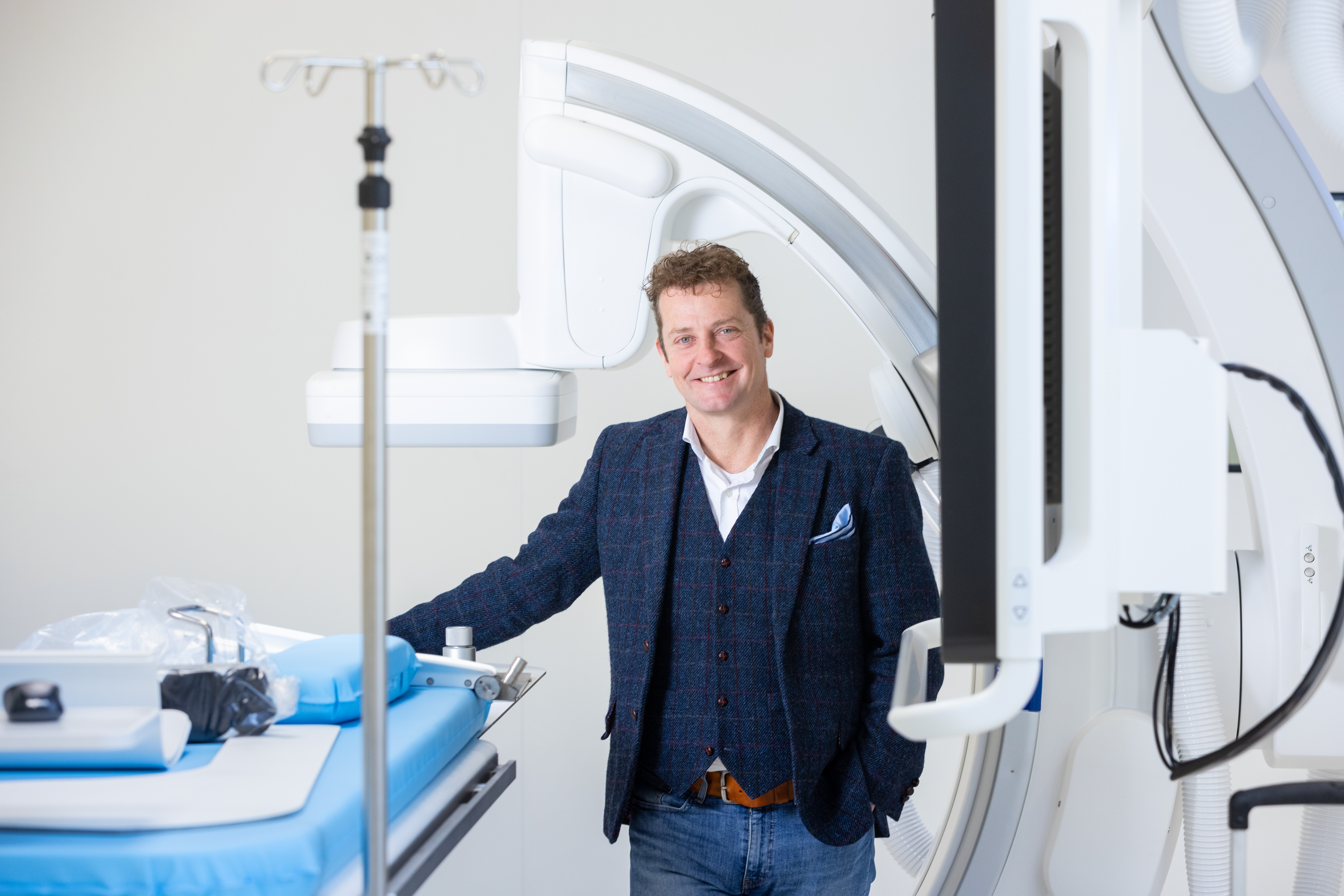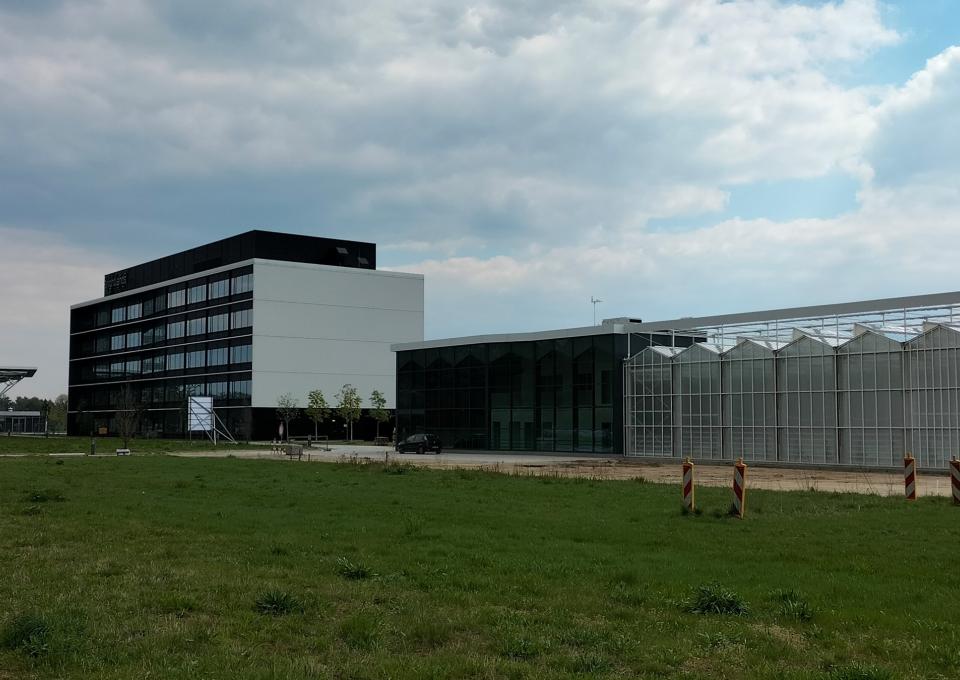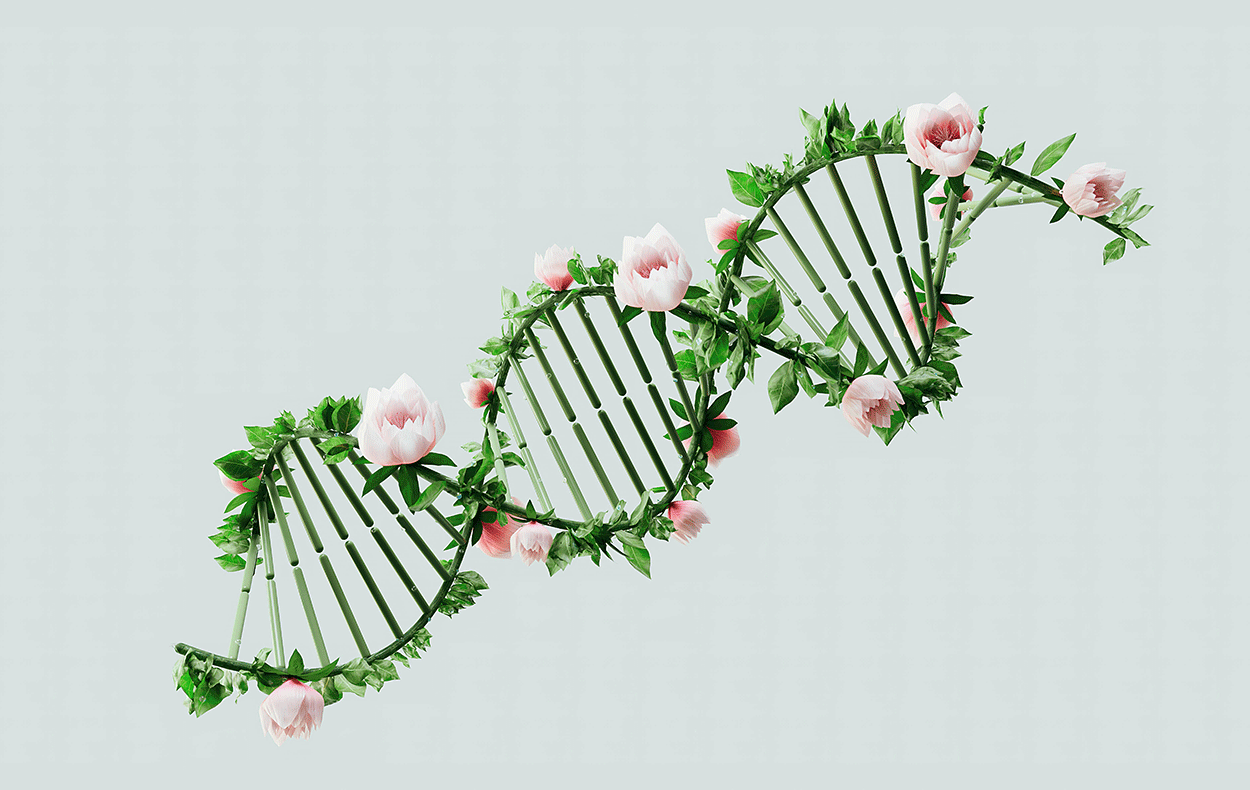Aachen-Maastricht Institute for Biobased Materials gets to work at Chemelot
The Aachen-Maastricht Institute for Biobased Materials (AMIBM) is getting started at the Brightlands Chemelot Campus. At an on-campus meeting on Wednesday 6 November, the initiators, Maastricht University (UM) and RWTH Aachen University, presented the professors who will be joining the AMIBM project team. It was also announced that the tender for the research equipment had been published. The partnership with the Fraunhofer Institute for Molecular Biology and Applied Ecology (Fraunhofer IME) in Aachen has also been developed further and the future research programmes have been detailed in a strategic plan.
In December 2011, UM and RWTH Aachen University announced their plans to establish the AMIBM. It will be the research hotspot on Brightlands Chemelot Campus for the production, acquisition, refinement and application of high-quality natural materials with new or improved properties, which will be extracted, processed and upgraded from plants or bacteria for medical and technological applications.
AMIBM project team
UM and RWTH Aachen University have appointed three so called ‘Drehkreuzprofessoren’ for AMIBM at Chemelot: Professor Rainer Fischer (Molecular Biotechnology), Professor Stefan Jockenhövel (Tissue Engineering & Textile Implants) and Professor Sanjay Rastogi (Polymer Physics). Together with their teams, they will be conducting unique research that adds to the research already taking place in Maastricht and Aachen. These professors can also bring companies at Chemelot into contact with relevant research partners in Aachen or Maastricht. This means that the campus provides direct access to the enormous supply of research capacity and facilities available at the two universities.
Unique research equipment
An installation will be built for the AMIBM research that can ‘spin’ biopolymers into fibres: polymers are placed in solution but are not melted as per the usual procedure, which often requires high temperatures that can damage the biopolymers. The machine can make bicomponent fibres, combining the properties of two materials into one single fibre. The installation can also coat the produced fibres to add new properties. The fibres are sprayed under ‘GMP conditions’ (General Medical Practice) to make them suitable for clinical applications, such as implants. The European tender for the purchase of this installation has recently been published; once a supplier has been selected, it will take about ten months before the machine is fully operational.
Fraunhofer IME
The partnership with RWTH Aachen University is organised through a number of its large institutes: the Institute of Textile Technology (ITA) and the Fraunhofer IME. The expertise of Fraunhofer IME is aimed at refining plants or bacteria that can produce high-quality biomaterials. They will also contribute to UM’s new Master of Science programme and will also play an active role in building a strong link with Greenport Venlo.
Kennis-As Limburg
AMIBM is one of the Kennis-As Limburg initiative projects. The research infrastructure and collaboration with the business world tie graduates to the region and create an attractive business climate for companies. The biobased products and processes that AMIBM develops will find applications in the medical, technical and consumer sectors, and thereby have great societal value. Finally, AMIBM will contribute to creating regional jobs: the ambition is to offer 66 fte of direct employment for knowledge workers in 2021.
Also read
-
Lee Bouwman, a vascular surgeon and endowed professor of Clinical Engineering, specialises in the implementation of groundbreaking healthcare technologies. The key to success, he says, lies in the collaboration between engineers and clinicians. This approach has already resulted in a range of...
-
Over the next four years, four young researchers can start research into crop biotechnology and engineering, thanks to the collaboration between Radboud University and Maastricht University. The researchers will start work at the Brightlands Campus Greenport in Venlo, halfway between the two...
-
Researchers from across the world have mapped the genetic relationships of the majority of flowering plant genera. Maastricht University helped with this massive effort, which completes the evolutionary tree of life of plants like never before. The famous scientific journal Nature published their...


